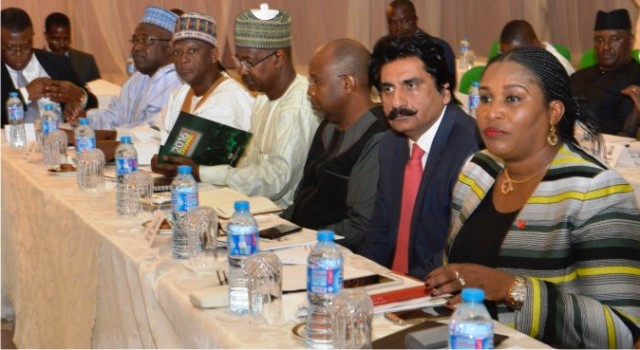Business
Cyber Café Operators Blame Low Patronage On Smart Phones

Cybercafé operators in
Abuja have complained that since the advent of smart phones, the level of patronage has reduced drastically.
The operators told newsmen in Abuja yesterday that the use of smart phones by majority of the populace had negatively affected patronage resulting to many closing shop.
A cybercafé operator, Mr Hector Ajero in Area 10 Shopping Complex, Abuja, said that since smart phones entered the market “business is no longer the way it used to be’’.
He said that before the advent of smart phones, business was a lot better and interesting “unlike now that everyone has the facility to access the internet conveniently’’.
“Before, when there were no smart phones, business was a lot better, now business is really going down,’’ he said.
He said that what many customers now come to cybercafés to do was just to print and sometimes type documents.
“But we spend money to buy fuel to carry out these services because of poor electricity and this has been affecting our businesses negatively.
“These days people do their jobs with their phones, save it on their flash drives then come to print, unlike before when they come to do their entire internet work and printing here,’’ he said.
Mr Christian Okpara, another cybercafé operator said, “the business is really tough now as sales are no more like there were.’’
“People no longer come for our internet services, we recharge the internet just for recharging sake because people rarely come to browse.
“What we do more with our internet is online registration for JAMB, WAEC, Post-UTME and job recruitments and all these are seasonal,’’ he said.
For Mrs Faith Deke, another cybercafé operator, the competition between cybercafés was high now because people do their works on their phones.
She said that her challenge was the charging rate by telecommunications operators, adding that “the good thing is the rollover process that has been put in place to help internet users’’.
“There is a lot of competition; we are just trying to get by because most people do their work on their phones.
“Charging rates are high compared to before but the good thing now is that there is rollover unlike before when there was no such thing.
“Roll over is a process whereby the unfinished data balance is transferred to the next month when another data is purchased,” she said.
She therefore appealed to the government to put in more efforts in making sure that they improved on electricity, saying “that is one major tool for running our business’’.
“When there is constant supply of electricity, the business will move well,’’ she said.
Business
Agency Gives Insight Into Its Inspection, Monitoring Operations

Business
BVN Enrolments Rise 6% To 67.8m In 2025 — NIBSS

The Nigeria Inter-Bank Settlement System (NIBSS) has said that Bank Verification Number (BVN) enrolments rose by 6.8 per cent year-on-year to 67.8 million as at December 2025, up from 63.5 million recorded in the corresponding period of 2024.
In a statement published on its website, NIBSS attributed the growth to stronger policy enforcement by the Central Bank of Nigeria (CBN) and the expansion of diaspora enrolment initiatives.
NIBSS noted that the expansion reinforces the BVN system’s central role in Nigeria’s financial inclusion drive and digital identity framework.
Another major driver, the statement said, was the rollout of the Non-Resident Bank Verification Number (NRBVN) initiative, which allows Nigerians in the diaspora to obtain a BVN remotely without physical presence in the country.
A five-year analysis by NIBSS showed consistent growth in BVN enrolments, rising from 51.9 million in 2021 to 56.0 million in 2022, 60.1 million in 2023, 63.5 million in 2024 and 67.8 million by December 2025. The steady increase reflects stronger compliance with biometric identity requirements and improved coverage of the national banking identity system.
However, NIBSS noted that BVN enrolments still lag the total number of active bank accounts, which exceeded 320 million as of March 2025.
The gap, it explained, is largely due to multiple bank accounts linked to single BVNs, as well as customers yet to complete enrolment, despite the progress recorded.
Business
AFAN Unveils Plans To Boost Food Production In 2026
-

 Politics4 days ago
Politics4 days agoEFCC Alleges Blackmail Plot By Opposition Politicians
-
Business4 days ago
AFAN Unveils Plans To Boost Food Production In 2026
-

 Sports4 days ago
Sports4 days agoJ And T Dynasty Set To Move Players To Europe
-
Business4 days ago
Industrialism, Agriculture To End Food Imports, ex-AfDB Adviser Tells FG
-
Politics4 days ago
Datti Baba-Ahmed Reaffirms Loyalty To LP, Forecloses Joining ADC
-
Politics4 days ago
Bayelsa APC Endorses Tinubu For Second Term
-
Business4 days ago
Cashew Industry Can Generate $10bn Annually- Association
-

 Entertainment4 days ago
Entertainment4 days agoAdekunle Gold, Simi Welcome Twin Babies

